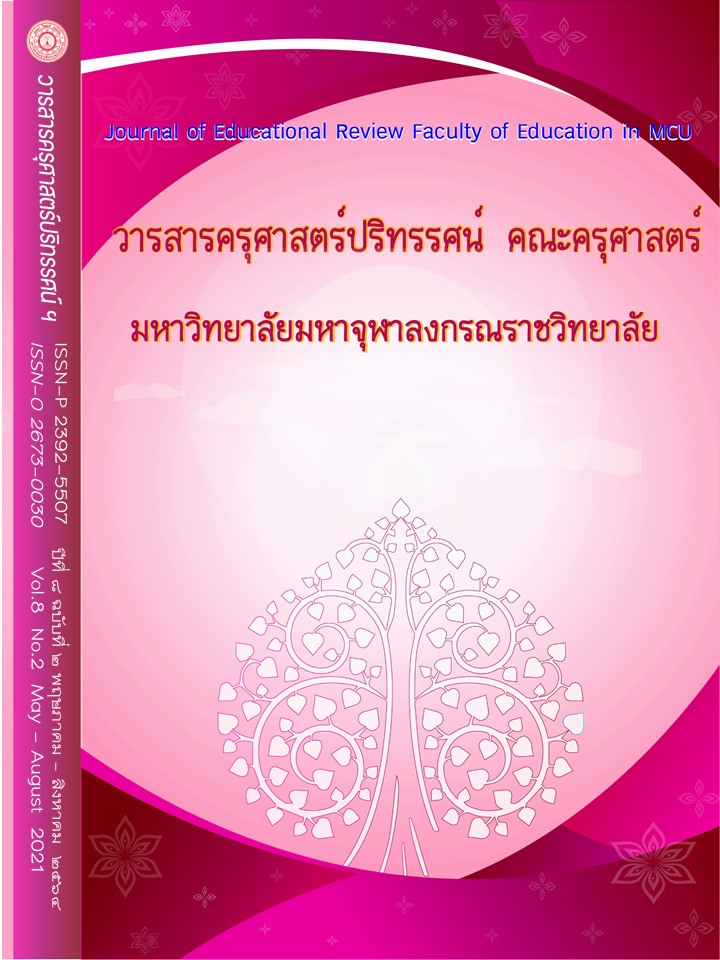THAI CUSTOM SERVICE STANDARDS 4.0 ERA POLICY IMPLEMENTATION
Main Article Content
Abstract
The purpose of this research was to 1) to study the Thai Customs Service Standards 4.0 Era policy implementation; 2) to study the problems and obstacles of Thai Customs Service Standards 4.0 Era policy implementation. This research was a qualitative. The method for collecting data used by 18 key informants obtained from purposive random sampling who were the persons with knowledge and involvement with the Customs Department, including the policy-level executives of the Customs Department, the operational personnel /officers of the Customs Department, Customs officer, Public service recipient Stakeholders Private companies / entrepreneurs related government agencies importer-exporter representative, ship-export customer service personnel. The tools used a structured interview. The results found that: 1) The adjustment of roles, missions and modes of operation by making appropriate rules regulations, optimize work processes, reduce processes, reduce time and costs. Decentralize decision-making focus was on being proactive, divide the work to the private sector to carry out tasks that were not necessary. 2) The adoption of electronic systems and digital technology by planning and setting directions for adoption. The electronic systems and digital technologies using had to be in line with the service standards policy, namely to increase efficiency, and service performance Improve the procedures and the duration of work. 3) Establishing cooperation between government and foreign sectors by integrating cooperation with relevant agencies, to create a collaborative framework. There was an exchange of opinions and solving problems together. 4) Credibility by reducing the use of staff's discretion, organize a training on morality, performance ethics for personnel to apply the principles of good governance to the organization. 5) Ability to respond to change by improving vision, mission and work processes, it was proactive, to apply innovation and modern technology to develop working systems and methods. 6) To create a seamless bureaucracy b using information technology to connect various information within the organization and between organizations. 7) Problems and obstacles were personnel to lack of knowledge, operational skills, rules and regulations Inconsistent with performance inappropriate, organizational structure and culture to lack of flexibility. There was corruption of the staff in the operation.
Article Details
ทัศนะและความคิดเห็นที่ปรากฏในบทความในวารสารฉบับนี้ถือเป็นความรับผิดชอบของผู้เขียนบทความนั้นเพียงผู้เดียว และไม่ถือเป็นทัศนะและความรับผิดชอบของกองบรรณาธิการ
กองบรรณาธิการขอสงวนสิทธิ์ในการคัดเลือกบทความลงตีพิมพ์และจะแจ้งให้เจ้าของบทความทราบหลังจากผู้ประเมินบทความตรวจอ่านบทความแล้ว
ต้นฉบับที่ได้รับการตีพิมพ์ในวารสารครุศาสตร์ปริทรรศน์ คณะครุศาสตร์ มหาวิทยาลัยมหาจุฬาลงกรณราชวิทยาลัย ถือเป็นกรรมสิทธิ์ของคณะครุศาสตร์ มหาวิทยาลัยมหาจุฬาลงกรณราชวิทยาลัย ห้ามนำข้อความทั้งหมดหรือบางส่วนไปพิมพ์ซ้ำ เว้นเสียแต่ว่าจะได้รับอนุญาตจากมหาวิทยาลัยฯ เป็นลายลักษณ์อักษร
References
กรมศุลกากร. (2561). มาตรฐานการบริการศุลกากรไทย. แหล่งที่มา https://www.customs.go.th/ สืบค้นเมื่อ 1 ก.ย. 2562.
แก้วลำพัน แสงนวนจัน. (2561). ความพึงพอใจการให้บริการด่านศุลกากรละไล แขวงสาละวันสาธารณรัฐประชาธิปไตยประชาชนลาว. วิทยานิพนธ์ศิลปศาสตรมหาบัณฑิต. มหาวิทยาลัยราชภัฏมหาสารคาม.
ชลิดา พันธ์กระวี. (2558). แนวทางการเชื่อมโยงและบูรณาการข้อมูลภาครัฐในการให้บริการด้านการนำเข้า-ส่งออก. หลักสูตรการป้องกันราชอาณาจักร. วิทยาลัยป้องกันราชอาณาจักร.
ภูริพัฒน์ ครองยุติ. (2561). การนำนโยบายไทยแลนด์ 4.0 ไปปฏิบัติ กรณีศึกษากรมศุลกากร. วิทยานิพนธ์รัฐประศาสนศาสตรมหาบัณฑิต. มหาวิทยาลักรามคำแหง.
วิษณุพงษ์ โพธิพิรุฬห์ และอังศธร ศรีสุทธิสะอาด. (2563). ราชการไทยไร้คอร์รัปชั่น การสำรวจความคิดเห็นของเจ้าหน้าที่รัฐต่อการแจ้งเบาะแสการทุจริต. รายงานวิจัย. สำนักงานคณะกรรมการส่งเสริมวิทยาศาสตร์ วิจัย และนวัตกรรม.
สุรสิทธิ์ บุญชูนนท์ และกรวิช เหล่าพิทักษ์โยธิน. (2562). อิทธิพลของคุณภาพระบบสารสนเทศคุณภาพบริการและคุณภาพข้อบังคับ ต่อความง่ายต่อการใช้งานการรับรู้ประโยชน์ และการยอมรับการใช้งานระบบการเชื่อมโยงข้อมูลอิเล็กทรอนิกส์ของเจ้าหน้าที่ศุลกากรกรมศุลกากรประเทศไทย. ดุษฎีนิพนธ์ปรัชญาดุษฎีบัณฑิต. มหาวิทยาลัยรามคำแหง.
อภิโชติ ชมพล. (2562). องค์กรนวัตกรรมกับธรรมาภิบาลของศุลกากรไทย. ดุษฎีนิพนธ์ปรัชญาดุษฎีบัณฑิต. มหาวิทยาลัยนอร์ท.
อรไท แก้วขาว. (2561). การศึกษากระบวนการทำงานเพื่อเพิ่มประสิทธิภาพการให้บริการด้านการปฏิบัติพิธีการนำเข้าและส่งออกสินค้า ด่านศุลกากรสะเดา จังหวัดสงขลา. วิทยานิพนธ์รัฐศาสตรมหาบัณฑิต. มหาวิทยาลัยรามคำแหง.


